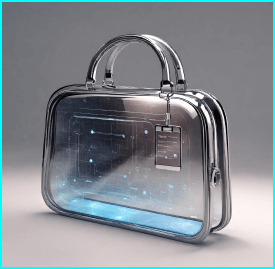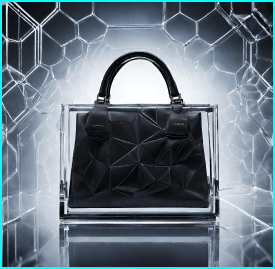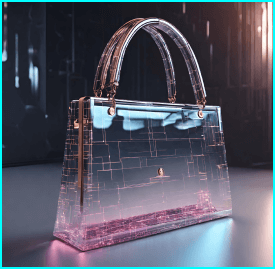Tokenization made it possible to authenticate luxury bags
Counterfeit but seemingly accurate copies undermine the brand value of luxury goods. Consumers unknowingly purchasing the fake product are being duped by an overpriced forgery, while also forming negative opinions about authentic brand. A travel and designer bag manufacturer tokenized the data associated with their offerings using NFTs, to address this challenge.


3 Key Challenges For Manufacturers Of Luxury Goods
Proliferation Of Counterfeits
A rapid rise in the number of counterfeits is undermining the exclusivity of luxury goods – the basis of their value.
Hurdles In Managing Warranties
In many instances fake luxury products come with warranty certificates that are difficult to identify as counterfeit.
Customer
Dissatisfaction
Consumers purchasing fake luxury products are disappointed with the quality – wrongly associating it with the real brand.

A solution based on Tokenization & Blockchain
The luxury travel and designer bag manufacturer took a blockchain and NFT-based approach to create a ledger of product authenticity. Data, from manufacture to purchase of each product, was represented by unique NFTs to verify its genuine nature.


SOLUTION 1
Creating Unique NFTs
Each luxury travel and designer bag were
issued its own NFT, guaranteeing authenticity
and origin details.

SOLUTION 2
Streamlined Transactions
Tokens were minted for online purchases and
QR scans were used for token transfers
for offline purchases.


SOLUTION 3
Private Wallet Integration
A private wallet was issued to customers
for storing and managing of the NFTs generated
by their purchases.

TRUST BUILT ON TOKENIZATION
NFT based unique identification of luxury travel and designer bags gave each individual product a built-in validation of all materials and steps involved in the manufacturing process.

Reduction Of Counterfeits
The company was able to protect brand reputation by reducing the counterfeits customers were exposed to by 37%.

Enhanced Warranty Management
A streamlined warranty process reduced operating costs by 24% and led to a 65% increase in customer satisfaction.

Rise In Consumer Trust
By using blockchain technology and NFTs, the company was able to protect its reputation as an authentic luxury brand.

Improved Brand Perception
The use of blockchain technology and NFTs gave the brand a modern and contemporary image among its customer base.


Qila has created the perfect options for your business to seamlessly onboard tokenization, as well as more advanced integration with dedicated resources.
Know More




